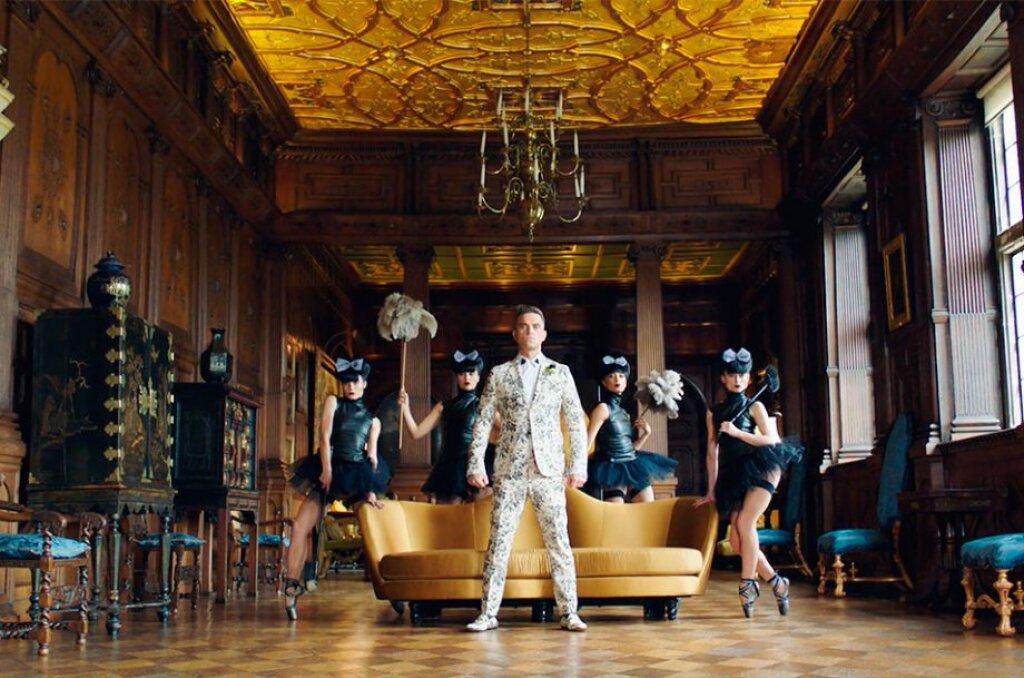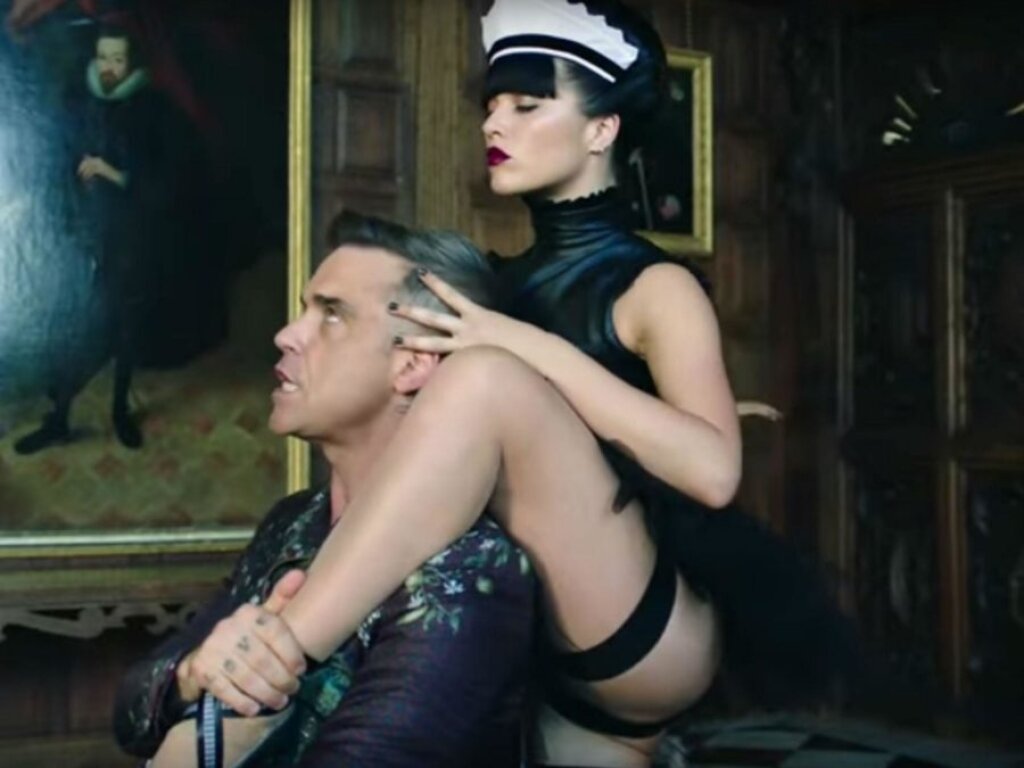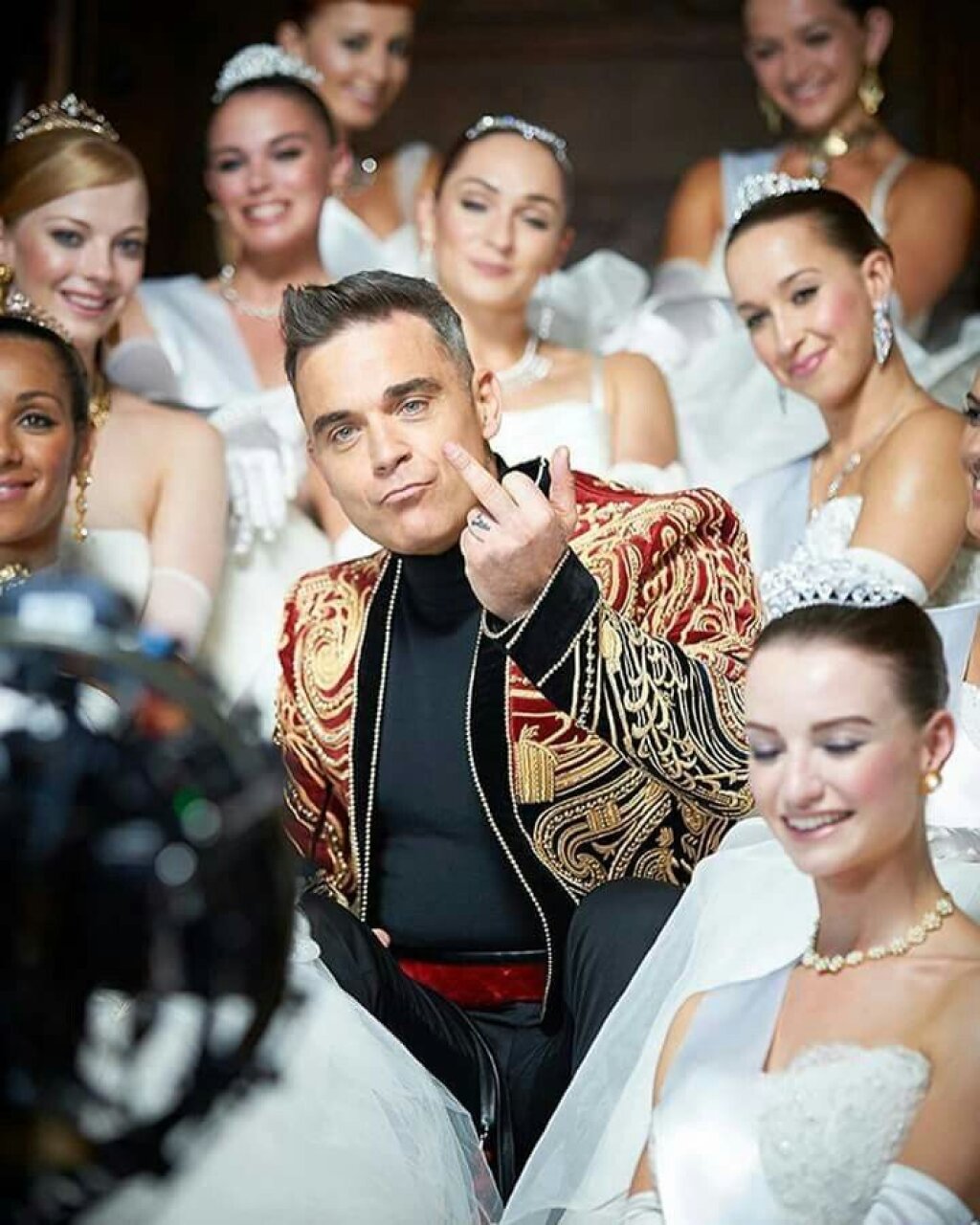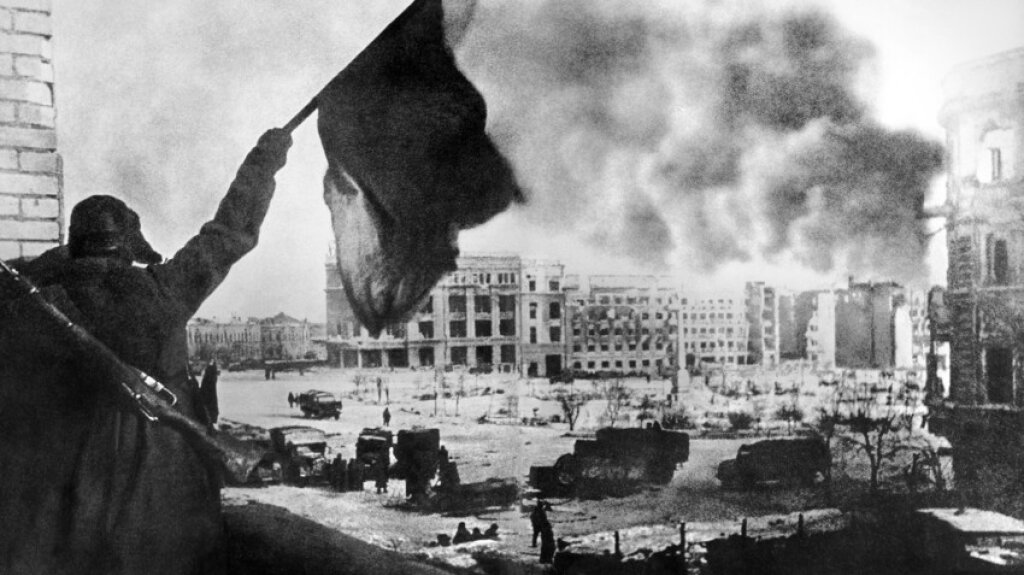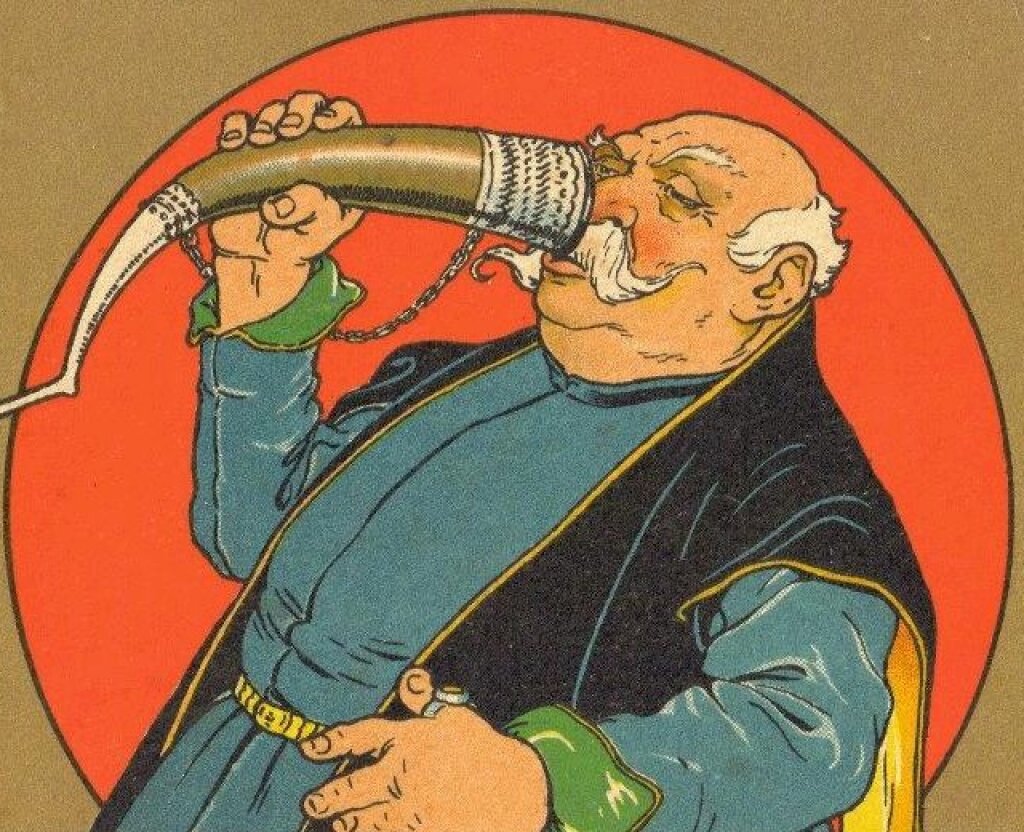This is the first entry of Chapter 2 of Russia’s Alien Nations: The Secret Identities of Post-Socialism, an ongoing feature on All the Russias. It can also be found at russiasaliennations.org. You can also find all the previous entries here.
Chapter 2
Whatever Happened to the New Russian?
Late to the Party
Exactly one decade after Sascha Baron-Cohen made the post-Soviet yokel a hilarious international embarrassment in the Borat movie, another British entertainer, Robbie Williams, released a music video that targetted a much narrower group. His 2016 song “Party Like a Russian” was something of a time warp: his invocation of the tacky rich Russian suggested that Williams was actually partying like its 1999.
Williams’ song is easy to hate. The combination of uninspired pop and canned Prokofiev ("The Montagues and the Capulets") is the worst thing to happen to Romeo and Juliet since the end of Romeo and Juliet. Plodding away at a soporific slow tempo, Williams deploys lazy Russian cliches with a lack of verve that is less Snoop Dogg and more Droopy Dog. Maybe it’s on account of the molly and the stoli that Williams brags about in one of the verses.
In her much livelier response to the video, Marieta Bozovic notes that the song “might offend all 147 million people in Russia.” That may be the case, but offense would more appropriately be taken by the top one percent. Or perhaps the top .1 percent—147,000 might be a better census result to describe the super wealthy people targeted by the video. And the rest of the country never liked them much, anyway.
Commentators surmised that Williams gathered his impressions about Russian partying from his concerts in Moscow and his presence at the corporate celebratory events Russians call “kooperativy,” speculating that he might no longer be welcome at such venues in the wake of the scandalous video. (Williams need not have worried; it turns out that the wealthy elites are the forgiving types, at least when their business interests are not threatened). But he might have formed his opinion without even leaving home. Thanks to the unforeseen consequences of brain drain and capital flight, the rich Russian presence in London is visible enough to have earned the British capital the nickname “Londongrad”.
Like Baron-Cohen, Williams gives Western audiences a simplified take on a complex post-Soviet type. In each case, the British artist’s appropriation evokes the complications that arise when the post-Soviet character braves the frontier and ends up in foreign lands. True, Baron-Cohen was the initial border-crosser thanks to his legendary vacation in Astrakhan, but all of Borat’s subsequent adventures took place in England and America. Williams, too, may have gotten an eyeful on his trips to Russia, but the only reason his partying Russian is legible to pop audiences is that rich Russians have garnered a reputation for conspicuous consumption in countries that had long been accustomed to their own home-grown plutocrats.
Not that Williams’ video required a great deal of inside knowledge in order to produce it. In fact, if it had, then the result might not have been as easily understood by non-russian audiences. What we are left with is a predictable range of easy targets. Williams name-checks Rasputin (admittedly, as part of a clever rhyme with Louboutin, the trendy shoes featured in that year's hit Leningrad song “Exhibit,” which Williams may not have known). He makes numerous allusions to corruption, and conveys Russian wealth (and possible money laundering and capital flight) through the unsurprising metaphor of the matryoshka:
There's a doll, inside a doll, inside a doll, inside a dolly
(Hello, Dolly)
I put a bank inside a car, inside a plane, inside a boat
It takes half the western world just to keep my ship afloat
Oh, and Russians don’t smile unless they have to, so there’s that ("And I never ever smile unless I've something to promote / I just won't emote").
The song’s bridge is sung by a heavily-accented, Red-Army style male chorus, mentioning that there is “revolution” in the air (because, Russia). Every now and then, Williams lip-syncs to a voice shouting “Spasibo!” (thank you). Uh, you’re welcome?
And don’t ask me to explain how anyone is supposed to “Ave like an oligarch.”
Beyond the lyrics, there is, of course, the visual aesthetic: cold, beautiful women decked out as S/M ballerinas, with signs of crass opulence as far as the eye can see. Williams and the women cycle in and out of Russian-inspired military costumes for no apparent reason, and the camera occasionally focuses in on the prison-style tattoos on the singers fingers. And, speaking of fingers, the second to last scene shows Williams sitting on the stairs, surrounded by beautiful ballerinas, flipping the bird to his adoring viewers.
“Party Like a Russian” is mess. The jumble of stock Russian visual signifiers stripped of context, the verbal references to Russian-related topoi fail to mesh into even the most elementary postmodern citational collage. Perhaps the best thing to say about it is that it makes Billy Joel’s “We Didn’t Light the Fire” look like a worthy pop equivalent to a Don DeLillo novel.
As failures go, however, Williams’ song and video are instructive. As social satire it manages to be neither timeless not timely, a reminder of its target's simultaneous longevity and extinction. The rich Russian is still very much with us; despite Williams’ inane references to “revolution,” when it comes to capitalist exploitation and income inequality, Russia gives America a run for its money. But the economic and biographical fact of rich Russians’ persistence is no guarantee that their role as a discursive phenomenon remains unchanged since the 1990s.
When the Russian Federation shook off the dust of the shattered Soviet Union, it awoke to the birth of a new, quasi-folkloric character type: the crass, acquisitive, nouveau riche known as the “New Russian.” The New Russian was the butt of a seemingly endless series of jokes, the subject of novels, and films, and the convenient object of class resentment and scorn.
But at some point in the early years of the twenty-first century, the New Russian died. Unmourned, he is survived by his real-life counterpart, the rich Russian; his former employees and epigones, sometimes called the “new middle class” or the “creative class”; and the millions of ordinary people who don’t have him to kick around anymore, but appear largely unmoved by his passing.
But what, exactly, was he? Where did he come from? And where did he go?
Next: Secret Origins of the New Russians

